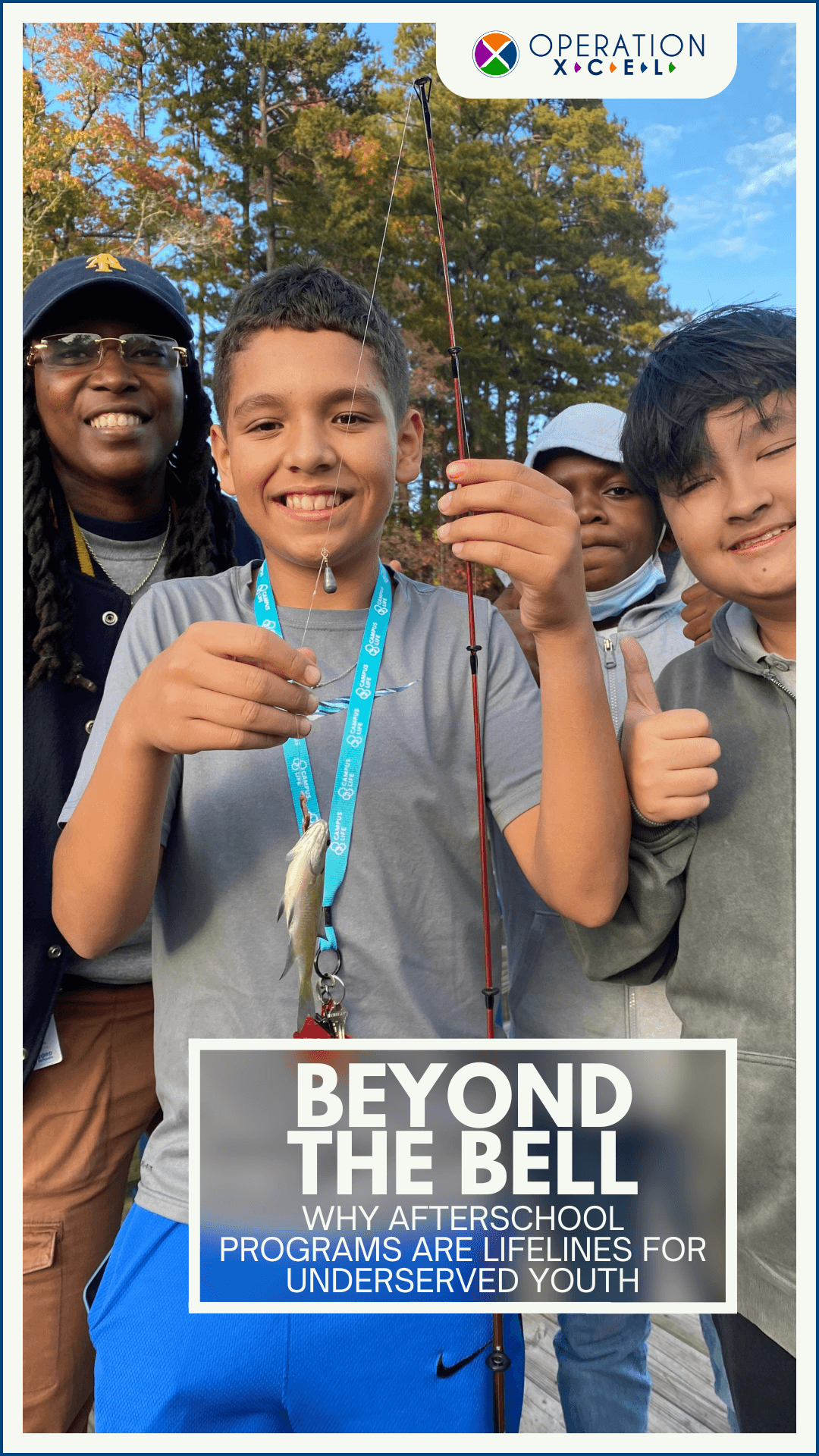
There is a significant demand for after-school programs in North Carolina. Cost and access are substantial barriers to participation in quality after-school programs, and these inequities disproportionately affect underserved youth. The Public School Forum of North Carolina (2020) reports that 58% of low-income parents find it challenging to transport their children to and from afterschool programs, while 61% identify cost as a barrier to enrolling their children in quality afterschool options. Although parents want their children to attend, it is not possible. This means the percentage of underserved youth participating in after-school programs is lower than that of their more affluent peers. "Underserved youth" refers to people facing more enormous obstacles and less access to the resources and opportunities that would allow them to reach their full potential. This term encompasses a range of young people who may be marginalized due to various factors, including – poverty, systemic discrimination and inequality, living in communities with limited resources, being an immigrant or having immigrant parents, physical, mental, or learning disabilities, or family dynamics from foster care, homelessness, or involvement in the juvenile justice system. These barriers create obstacles that limit underserved youth and may create adverse outcomes.
Underserved youth face challenges, including academic disparities like the lack of access to resources and support for academic success, and learning loss. They face socioeconomic challenges related to limited access to enrichment activities, food insecurity, and lack of basic needs like housing. Safety and supervision are of major concern for marginalized youth because of the increased exposure to negative influences and lack of safe and structured environments. These challenges are exacerbated by their limited opportunities for social-emotional learning and access to positive role models. Afterschool programs make a difference in the lives of the marginalized youth who otherwise could not afford to attend these programs. North Carolina ranks high on the list of quality after-school programs; however, many low-income families report that these programs are unaffordable. Parents give high ratings to after-school programs because these programs reduce their concerns about their child’s well-being after school.
Operational Xcel’s Operation Homework after-school programs offer tutoring, homework help, and enrichment activities free of charge to all underserved youth in Title I schools in Guilford County and Stokesdale. Operation Xcel exists to reach underserved youth, training them to overcome many obstacles to their future success. The trained and credible teachers and school administrators who regularly interact with the youth assist with teaching them life skills, providing academic support, enrichment and skill development, a safe and supportive environment, social emotional learning (SEL), and even nutritional support. The students benefit from enrichment and skill development through STEAM programs, arts, music, sports programs, and life skills training, including improved communication skills that Operation Xcel offers at each of its eight (8) sites. Operation Xcel programming addresses the lack of safe spaces by creating a haven during critical after-school hours. The students participating in Operation Homework are expected to thrive because positive adult mentors offer guidance, boost their self-esteem, resilience, and problem-solving skills. Each of these social-emotional learning skills promotes positive social interactions and relationships. Students enjoy a healthy snack choice upon their arrival at Operation Xcel’s Operation Homework sites while the teachers and mentors take advantage of the opportunity to promote healthy learning habits.
Operation Xcel's website features several youth success stories, along with newsletters and campaigns highlighting the positive outcomes of their after-school programs. One standout story is about Jayden, who went from failing math to achieving a B by the end of the school year, thanks to the support he received at Operation Homework. Another inspiring story is about Evan, a middle school student on the autism spectrum, who became more sociable and communicative during his time in the program. Operation Xcel regularly sponsors outreach events to expand its reach and promote its programs to families with youth, aiming to support more underserved young people. One of the key events is the Back-to-School Parent Resource Fair, which attracts over 400 families. During this fair, Operation Xcel offers workshops to inform parents and provide resources that help their children succeed in school and in the community. Additionally, Operation Xcel includes breakfast, lunch, free seminars, and stuffed book bags for every child who attends the event.
There is a tremendous need for increased funding, support, and volunteerism for nonprofit programs like Operation Xcel. We encourage you to donate, volunteer, or advocate for Operation Xcel. The 21st Century Community Learning Center (CCLC) provided Operation Xcel with a $468,869 grant in 2019. Yet it takes close to $1 million to fund the after-school and summer programs at Operation Xcel. While Operation Xcel receives other grants, sponsorships, and donations to help fund its programming, 2025 brought significant philanthropic challenges to North Carolina due to the catastrophic hurricane that devastated entire cities in the western part of the state in September 2024. It is safe to say that the percentage of underserved youth participating in after-school programs is lower than that of their more affluent peers. Fortunately, free programs like Operation Xcel help bridge the gap for as many students as possible. North Carolina Center for Afterschool Programs (NCCAP) (2025) reports that “for every child in an afterschool program, 3 are waiting to get in” and there are almost 200,000 children at home alone without supervision after 3 PM.
Quality after-school programs can be transformative for disadvantaged youth, but the unmet demand remains high. Operation Xcel aims to sustain its efforts beyond the current administration and staff to impact surrounding communities positively, one child at a time. The mission of Operation Xcel is to continue providing hope and empowerment to families living on the margins, who might otherwise struggle to enroll their children in effective afterschool programs. Every child deserves access to opportunities that will promote their success at home, in school, and throughout their lives.
Other Resources
https://ewa.org/how-to-cover-the-story/barriers-to-kids-accessing-after-school-programs
https://governor.nc.gov/governor-proclaims-lights-afterschool-day-2024
chrome-extension://efaidnbmnnnibpcajpcglclefindmkaj/https://learningpolicy institute.org/sites/default/files/product-iles/Advancing_Educational_Equity_ Underserved_Youth_REPORT.pdf

